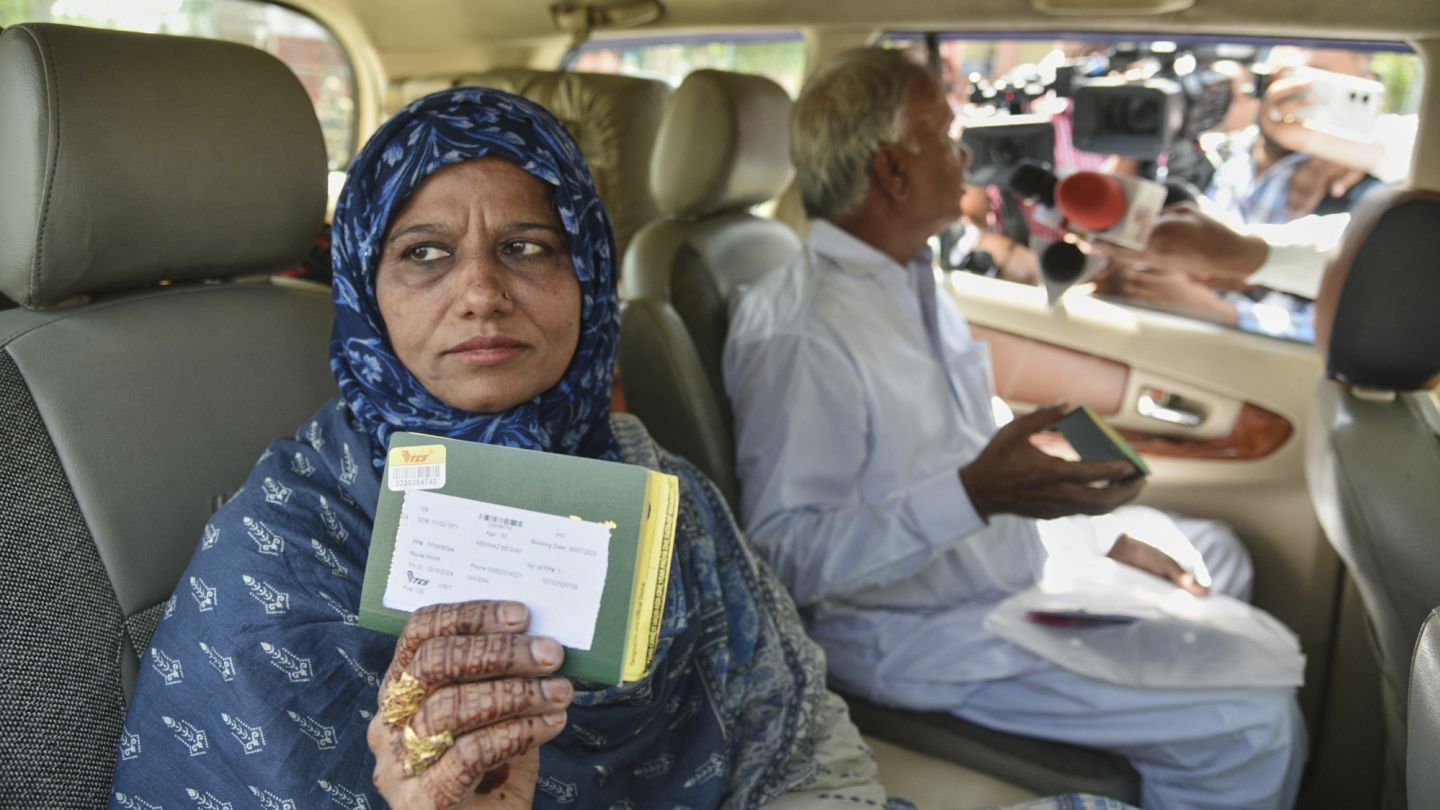India and Pakistan cancel visas as rift deepens after mass shooting in Kashmir
The rare attack, which targeted mostly tourists and left 26 people dead, shocked and outraged Indians, prompting calls for action against Pakistan.
India and Pakistan have cancelled visas for each other's nationals as a diplomatic rift between them widens following Tuesday's mass shooting by militants in the disputed territory of Kashmir.Indian authorities said all visas issued to Pakistani nationals will be revoked from Sunday, adding that all Pakistanis currently in India must leave before their visas expire based on the revised timeline.The country also announced other measures, including cutting the number of diplomatic staff and closing the only functional land border crossing between the countries.Islamabad also reacted angrily after New Delhi suspended a water-sharing treaty on Thursday and blamed Pakistan for the attack, which left 26 people dead.The landmark Indus Water Treaty has survived two wars between the countries, in 1965 and 1971, and a major border skirmish in 1999.The pact was brokered by the World Bank in 1960 and allows for sharing the waters of a river system that is a lifeline for both countries, particularly for Pakistan's agriculture.Pakistan said it had nothing to do with the attack and warned that any Indian attempt to stop or divert flow of water would be considered an "act of war" and met with "full force across the complete spectrum" of Pakistan's national power.In Islamabad and other cities across Pakistan, demonstrators rallied against India's suspension of the treaty, demanding the government retaliate.Pakistan has closed its airspace for all Indian-owned or Indian-operated airlines and suspended all trade with India, including to and from any third country.Tuesday's attack was the worst assault in years targeting civilians in the restive region that has seen an anti-India rebellion for more than three decades.The rare attack, which targeted mostly tourists, shocked and outraged Indians, prompting calls for action against Pakistan.The Indian government did not publicly produce any evidence of Pakistani state involvement, but said the attack had "cross-border" links to Pakistan.The killings have put pressure on Indian Prime Minister Narendra Modi's Hindu nationalist government to respond aggressively."India will identify, track and punish every terrorist, their handlers and their backers," Modi said at a public rally Thursday."We will pursue them to the ends of the Earth." Pakistan denied any connection to the attack, which was claimed by a previously unknown militant group calling itself the Kashmir Resistance.Pakistan's National Security Committee condemned India's "belligerent measures."It said that while Pakistan remained committed to peace, it would never allow anyone to "transgress its sovereignty, security, dignity and inalienable rights."Government ministers on both sides have hinted that the dispute could escalate to military action.Pakistan's Foreign Minister Ishaq Dar told local Dunya News TV channel that "any kinetic step by India will see a tit-to-tat kinetic response."Indian Defence Minister Rajnath Singh pledged on Wednesay to "not only trace those who perpetrated the attack but also trace those who conspired to commit this nefarious act on our soil" and hinted at the possibility of military strikes.India and Pakistan each administer a part of Kashmir, but both claim the territory in its entirety.New Delhi describes all militancy in Kashmir as Pakistan-backed terrorism; Pakistan denies this ,and many Muslim Kashmiris consider the militants to be part of a home-grown freedom struggle.Modi overturned the status quo in Kashmir in August 2019, when his government revoked the region’s semi-autonomous status and brought it under direct federal control.However, relations with Pakistan remained stable as the two countries renewed a previous ceasefire agreement along their border in 2021, which has largely held despite militant attacks on Indian forces in the region.


